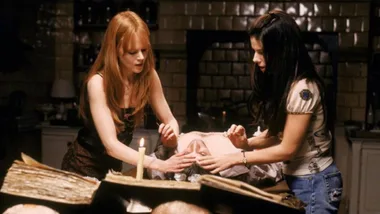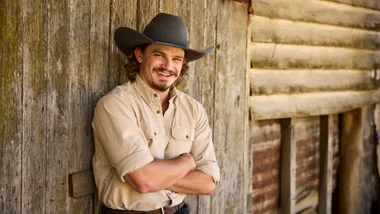On June 28th, Kat Torres, a Brazilian model and influencer, was sentenced to eight years in prison for charges of human trafficking and slavery by a Brazilian judge.
Before her arrest, Torres was much like any influencer you’d catch on TikTok or Instagram. She spent most of her time modelling clothes and beauty looks, documenting her travels and sharing her healthy lifestyle. In between, you could catch her having downtime with her dog, reading and taking baths.
But, in a recent BBC investigation and subsequent documentary Like, Follow, Trafficked: Insta’s Fake Guru Torre’s victims have spoken out and shared the details of their experiences with her.
How Did Kat Torres Connect With Her Victims?
In Like, Follow Trafficked Luzer Twersky, Torres’s former flatmate says the influencer “flipped” after spending time in the Hollywood Hills. He alleges the influencer spent time taking ayahuasca, a mind-altering psychedelic, after which she “went off the deep end.”
He told BBC Investigations that he believed Torres was working as a sugar baby, alleging that her clients were paying for the flat they lived in. Around this time, Torres published a self-help book called The Voz (The Voice). In The Voz she outlined her philosophy, and a belief that she had special powers, and could make predictions.
According to the influencer, she’d clawed her way out of childhood poverty and spent her time travelling the world. She claimed to have dated Leonardo Dicaprio (a claim friends of the actor have refuted).
Plenty of women wanted Kat’s advice. At her peak, she coached 14,000 people, provided one-on-one consultations, and gave advice via a gated site.
Ex-clients who spoke with the BBC say Torres was strict, and her instructions left many of them feeling isolated from family and friends.
Still, she meant a lot to her followers. In the documentary, Ana, who believes she was Kat’s first victim, recounts discovering Kat, and feeling like she might be a way out of a dark period of her life. Ana had left an abusive relationship and was struggling with her mental health. When she found Kat Torres’s account, full of affirmations and her own tales of having escaped a traumatic past, Ana said, “She kind of resembled hope for me.”
After connecting with Kat Torres, Ana accepted the offer to be her live-in assistant.
Kat Torres’ Double Life:
Ana says she was employed to do Torres’s cooking, laundry, and cleaning, as well as caring for her pets. She told the BBC she was instantly struck by the difference between Torres’ life, as depicted online, and her actual life.
The sofa Ana slept on was covered in cat urine, the house was messy, and Torres was demanding. She refused to do anything without Ana, including showering, saying she hated being alone. Ana only slept a few hours a night as she was on call for Torres. She had given up her university accommodation in Boston and had nowhere else to go.
And payment never came.
“She was using me as a slave,” Ana told BBC Investigations. Eventually, Ana found a new boyfriend and moved into his apartment.
Kat Torres recruited three more young women, Desirrê Freitas and Letícia Maia and Sol*.
She worked hard at convincing these women to move in. Torres told Desirrê that she was suicidal and needed the company. She then paid for her ticket from Germany. Meanwhile, she convinced Letícia to move for an au pair program, then told her to drop out when she arrived in the US. Sol, meanwhile, was homeless and hoped Torres would help her build a yoga and tarot business.
Instead, she found herself working round the clock for the influencer. Torres openly shared footage of her “witch clan” on social media. Four more women told BBC Investigations Torres attempted to recruit them, but they pulled out.
Torres’s requests soon extended beyond household chores. Desirrê alleges Torres pressured her to work for a strip club and said if she didn’t, she would need to backpay Torres for accommodation and services rendered. The demands eventually escalated to prostitution.
BBC Investigations reports that Torres confiscated the women’s IDs, including passports and driver’s licenses, and forbade them from speaking to each other. They were required to give her all of their earnings and needed permission from Torres to leave their bedrooms. She also set the women quotas – they had to earn $3000 US dollars a night at strip clubs or she would lock them out of the house. She took all the proceeds as payment.
Desirrê said she was reduced to sleeping on the street “several times.” A strip club manager told the BBC that Desirrê worked long hours seven days a week to hit these quotas.

How Kat Torres Victims Escaped:
Sol’s ex-boyfriend eventually helped her escape, but Desirrê and Leticia’s families experienced months of no contact. In September 2022, they started a social media campaign and contacted police. Previous victims like Ana became involved, reporting their experiences to law enforcement agencies nationwide.
The FBI eventually became involved in the case.
Soon after, Torres became worried about the investigation and took the women to Maine, 2,000 miles away. The women shared social media videos in which they said they were not being held captive and that they wanted people to “leave them alone.” In the BBC series, a video taken by one of the women shows Torres coaching them before a Facetime. “They are full of tricks. He’s a detective, be very careful. For God’s sake, I’ll kick you out if you say anything. I’ll scream” she says.
Eventually local police requested that Torres and the girls attend a welfare check. They noticed her companions were reluctant to speak when she was present. She was deported to Brazil where she was charged with human trafficking, slavery and medical fraud in November 2022.
How Kat Torres Has Responded:
Torres maintains her innocence, she granted an interview with the BBC in which she seemed to deny all accusations. “No women lived with me, other than my dog.” She said transfers of large sums from Desirre, which came to over USD 21,000 between Jun and July 2022, were Uber receipts and said she doesn’t regret any of the advice she gave clients.” Her clients seem to have regretted their interactions with her though. According to the BBC at least 20 women have made reports of defrauding and exploitation by Torres.
Meanwhile, Torres told BBC that she laughed during testimony. “When I saw the people testifying, they told so many lies. So many lies that at one point, I couldn’t stop laughing.”
Is Social Media Enabling A Rise In Human Trafficking?
As reported by the BBC, the UN indicates human trafficking is one of the fastest-growing crimes and generates an estimated $150 billion a year.
Detective David Davol, the police officer who had Torres deported back to Brazil, told the BBC he was concerned social media provided a platform for bad actors to take advantage of desperate people. “Human traffickers aren’t always like in the movies, where you have… a gang that kidnapped people. It’s far more common that it’s someone you trust,” he explained.
Ana told the BBC that she hoped the coverage the documentary would garner would help people recognise that Torres’s crimes went beyond “some Instagram drama.”
Where To Watch The Kat Torres Documentary
Like Follow, Trafficked was released in the UK via BBC iPlayer, but in Australia, you can access the program via the BBC Youtube Channel.
Related Articles:
- Sophie Turner Is A Real-Life Jewel Thief In New True-Crime Drama ‘Joan’
- What Happened To Ghistlaine Maxwell’s Victims?
- Amanda Knox Found Guilty In Italian Court: Her Story, Explained
 Getty/Mark Davis
Getty/Mark Davis









